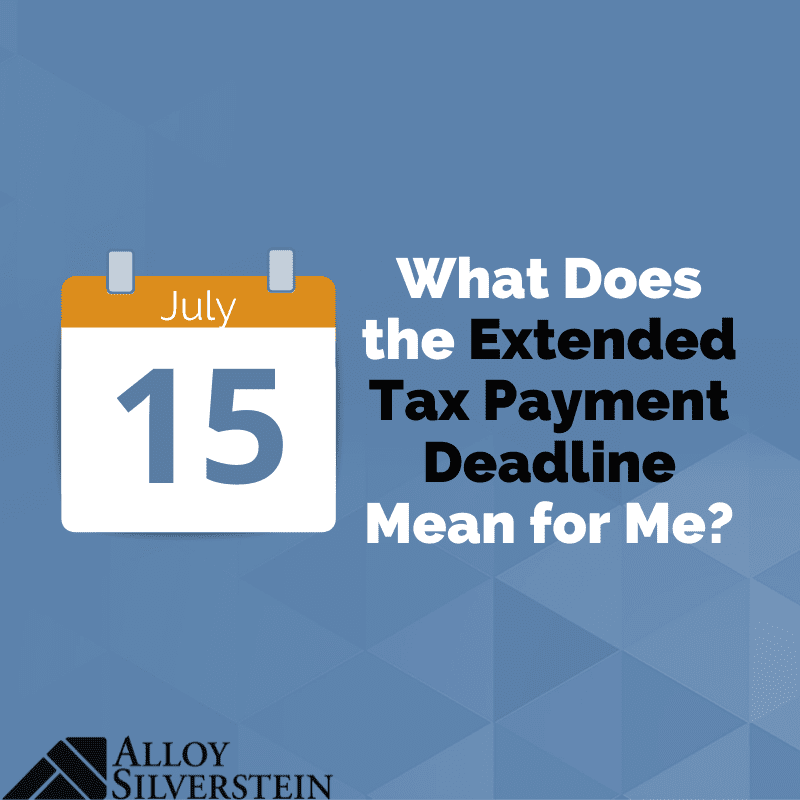
As you may know by now, the deadline to pay your tax bill is officially moved from the April 15th tax deadline to July 15th, per U.S. Treasury Secretary Steven Mnuchin. This announcement was made on Tuesday, March 17, 2020 during a press conference at the White House and confirmed by an IRS notice the following day.
* Late Breaking Alert: At 9:30 CST, Friday March 20, 2020 Treasury Secretary, Steven Mnuchin tweeted the following: “At @realDonaldTrump’s direction, we are moving Tax Day from April 15 to July 15. All taxpayers and businesses will have this additional time to file and make payments without interest or penalties.” The IRS retweeted this message.
While the federal government grants you an additional 3 months to pay your 2019 taxes, you are still required to file your tax return by April 15 or file for an extension. Here are some thoughts on different situations.
For now, the IRS is still issuing refunds as normal. For e-filers, refunds are often sent in less than three weeks. If the IRS is forced to scale back its operations for safety reasons, however, your refund could be delayed.
If you cannot complete your tax return by April 15, consider filing an extension. This moves your filing deadline to October 15. In the case of an extension under these new rules, your tax return would be due on or before October 15, 2020, but your tax payment is now due on or before July 15, 2020.
Below are federal and state forms to request a six-month filing extension.
The IRS normally has three years to audit a tax return. The three-year window to audit a return typically starts on either the tax return due date or the filing date, whichever is later. If shortening the audit window is important to you, consider filing sooner versus later.
States are rolling out their own guidelines for extensions. Some are waiting on the IRS, while others are acting independently. Since most states require copies of federal tax return information, be prepared to still file by April 15. Remember, even if you wait until later to file your federal return and pay your tax, you may have to file your state and/or local return sooner.
Affected taxpayers subject to penalties and additional tax despite this relief may seek a waiver to the penalty.
Rest assured, as the rules and deadlines change, updates will be provided. In the meantime, please stay safe during this challenging time. Contact an Alloy Silverstein accountant and advisor for tax assistance this tax season.
Empowering business owners and individuals in South Jersey and Philadelphia to feel confident through proactive accounting and advisory solutions.